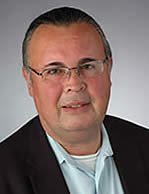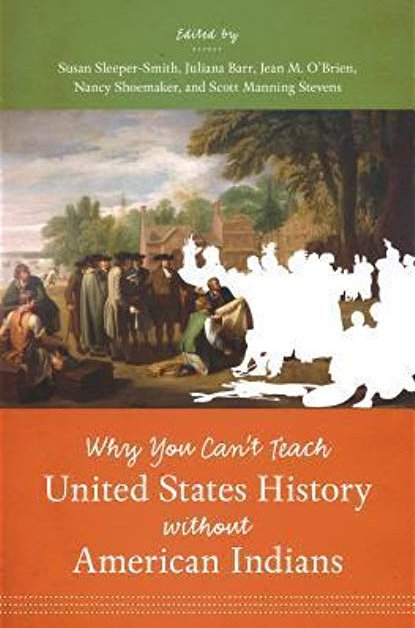Syracuse Professor Reconsiders Role of Native Americans in U.S. History
Scott Manning Stevens is co-author of new book ‘Why You Can’t Teach United States History Without American Indians’

The role of Indigenous peoples in American history is being reconsidered in a new book, co-edited and co-authored by a professor in Syracuse University’s College of Arts and Sciences.
Why You Can’t Teach United States History Without American Indians (University of North Carolina Press, 2015) features 19 essays by leading scholars of Native American history, including Scott Manning Stevens, associate professor and director of Native American studies.
Stevens is also the book’s editor, along with Susan Sleeper-Smith, professor of history at Michigan State University; Juliana Barr, associate professor of history at the University of Florida; Jean M. O’Brien, professor of history at the University of Minnesota; and Nancy Shoemaker, professor of history at the University of Connecticut.
He says the book is designed to illuminate the “undeniable centrality” of American Indian history to the full sweep of U.S. history.
“This book is for anyone who teaches or studies U.S. history because it presents major themes, events, historical figures, and approaches in a new light,” says Stevens, an expert in diplomatic and cultural strategies of resistance among North American Indians. “It clearly demonstrates how Native American nations, in a struggle to retain their sovereignty, have shaped the history of the United States, even while their own histories were being ignored or suppressed.”

Among the issues that Stevens and his colleagues address are settlement and colonization, economic and political power, citizenship and movements for equality, and political identity.
Already, the book has drawn praise from critics and colleagues alike. Penn State professor Ari Kelman says it confirms what historians have long suspected—that the experiences of Indigenous peoples are “central, rather than peripheral” to the American story.
Adds Dartmouth professor Colin Calloway: “This book gives us a new set of tools with which to chip away at the old block. [It is] a much–needed addition to the field of Indigenous studies.”
A citizen of the Akwesasne Mohawk Nation, Stevens joined the Syracuse faculty in 2013, after simultaneously serving as director of the D’Arcy McNickle Center for American Indian and Indigenous Studies at The Newberry Library in Chicago and adjunct professor of American studies at the University of Notre Dame. He also has held teaching positions at the University at Buffalo; Arizona State University; and Harvard University, where he earned a Ph.D. and master’s degree in English and American literatures.
Featured
Scott Stevens Associate Professor, Director - Center for Global Indigenous Cultures and Environmental Justice, Director - Native American and Indigenous Studies
